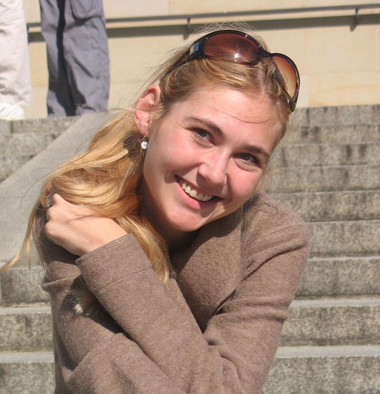Katrin Heimann: "How movies move us just the right way!?"
Recent surveys reported that average people for as much as about 1/5 of their lifetime are confronted with the world via film, that is life action edited moving image material. Still, the principles of film perception are only scarcely investigated.
Info about event
Time
Location
IMC meeting room, Nobelparken, building 1483-3
Organizer

How movies move us just the right way!?
Recent surveys reported that average people for as much as about 1/5 of their lifetime are confronted with the world via film, that is life action edited moving image material. Still, the principles of film perception are only scarcely investigated. As one of the biggest mysteries remains the so called bipolar nature of film: Film is widely known as the medium maybe best able to simulate real world experience - drawing the spectator in the fictional world so vividly presented that it has almost illusionary capacities. Crucially, this holds despite the fact that - on the other hand - the world as represented in film obviously looks very different from the way we perceive it in real life interactions. Weird perspectives, unknown movements, jumps in time and space in a split of (less than a second) in movies surprisingly do not surprise us at all.... In film theory this mystery is often explained by the argument that filmmaking is guided by certain rules determining the uses of camera and montage, developed to substantiate our expectations from real world perception to a degree that allows also their occasional violations. During my PhD Katrin conducted several EEG studies investigating the neural underpinnings of these filmmaking rules by means of the combined analysis of rhythms and ERP. In her presentation results, open questions and future plans for further investigations shell be discussed.
Katrin Heimann studied Philosophy and Culture (M.A.) at the University of Witten/Herdecke, Germany, and Brain and Cognitive Sciences (M.Sc.) at the University of Amsterdam, Holland. Afterwards she spent three years at the University of Parma, Italy, where she pursued her PhD in Neuroscience working on the neural underpinnings of human film perception under the supervision of Vittorio Gallese. At the 1st of March she will start her first Post Doc Position at the IMC Aarhus to continue her interdisciplinary investigations about past, present and future of human film perception.
